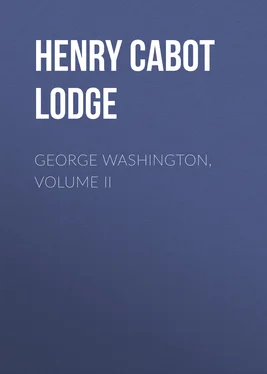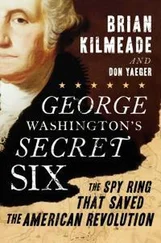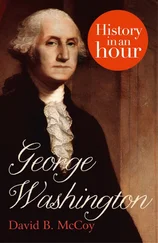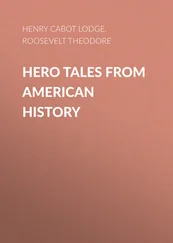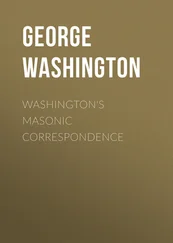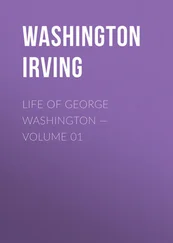Henry Cabot Lodge - George Washington, Volume II
Здесь есть возможность читать онлайн «Henry Cabot Lodge - George Washington, Volume II» — ознакомительный отрывок электронной книги совершенно бесплатно, а после прочтения отрывка купить полную версию. В некоторых случаях можно слушать аудио, скачать через торрент в формате fb2 и присутствует краткое содержание. Жанр: Биографии и Мемуары, История, foreign_edu, foreign_antique, foreign_prose, на английском языке. Описание произведения, (предисловие) а так же отзывы посетителей доступны на портале библиотеки ЛибКат.
- Название:George Washington, Volume II
- Автор:
- Жанр:
- Год:неизвестен
- ISBN:нет данных
- Рейтинг книги:5 / 5. Голосов: 1
-
Избранное:Добавить в избранное
- Отзывы:
-
Ваша оценка:
- 100
- 1
- 2
- 3
- 4
- 5
George Washington, Volume II: краткое содержание, описание и аннотация
Предлагаем к чтению аннотацию, описание, краткое содержание или предисловие (зависит от того, что написал сам автор книги «George Washington, Volume II»). Если вы не нашли необходимую информацию о книге — напишите в комментариях, мы постараемся отыскать её.
George Washington, Volume II — читать онлайн ознакомительный отрывок
Ниже представлен текст книги, разбитый по страницам. Система сохранения места последней прочитанной страницы, позволяет с удобством читать онлайн бесплатно книгу «George Washington, Volume II», без необходимости каждый раз заново искать на чём Вы остановились. Поставьте закладку, и сможете в любой момент перейти на страницу, на которой закончили чтение.
Интервал:
Закладка:
From Mount Vernon to New York it had been one long triumphal march. There was no imperial government to lend its power and military pageantry. There were no armies, with trophies to dazzle the eyes of the beholders; nor were there wealth and luxury to give pomp and splendor to the occasion. It was the simple outpouring of popular feeling, untaught and true, but full of reverence and gratitude to a great man. It was the noble instinct of hero-worship, always keen in humanity when the real hero comes to awaken it to life. Such an experience, rightly apprehended, would have impressed any man, and it affected Washington profoundly. He was deeply moved and touched, but he was neither excited nor elated. He took it all with soberness, almost with sadness, and when he was alone wrote in his diary:—
"The display of boats which attended and joined us on this occasion, some with vocal and some with instrumental music on board; the decorations of the ships, the roar of cannon and the loud acclamations of the people, which rent the skies as I passed along the wharves, filled my mind with sensations as painful (considering the reverse of this scene, which may be the case after all my labors to do good) as they were pleasing."
In the very moment of the highest personal glory, the only thought is of the work which he has to do. There is neither elation nor cynicism, neither indifference nor self-deception, but only deep feeling and a firm, clear look into the future of work and conflict which lay silent and unknown beyond the triumphal arches and the loud acclaim of the people.
On April 30 he was inaugurated. He went in procession to the hall, was received in the senate chamber, and thence proceeded to the balcony to take the oath. He was dressed in dark brown cloth of American manufacture, with a steel-hilted sword, and with his hair powdered and drawn back in the fashion of the time. When he appeared, a shout went up from the great crowd gathered beneath the balcony. Much overcome, he bowed in silence to the people, and there was an instant hush over all. Then Chancellor Livingston administered the oath. Washington laid his hand upon the Bible, bowed, and said solemnly when the oath was concluded, "I swear, so help me God," and, bending reverently, kissed the book. Livingston stepped forward, and raising his hand cried, "Long live George Washington, President of the United States!" Then the cheers broke forth again, the cannon roared, and the bells rang out. Washington withdrew to the hall, where he read his inaugural address to Congress, and the history of the United States of America under the Constitution was begun.
CHAPTER II
STARTING THE GOVERNMENT
Washington was deeply gratified by his reception at the hands of the people from Alexandria to New York. He was profoundly moved by the ceremonies of his inauguration, and when he turned from the balcony to the senate chamber he showed in his manner and voice how much he felt the meaning of all that had occurred. His speech to the assembled Congress was solemn and impressive, and with simple reverence he acknowledged the guiding hand of Providence in the fortunes of the States. He made no recommendations to Congress, but expressed his confidence in their wisdom and patriotism, adjured them to remember that the success of republican government would probably be finally settled by the success of their experiment, reminded them that amendments to the Constitution were to be considered, and informed them that he could not receive any pecuniary compensation for his services, and expected only that his expenses should be paid as in the Revolution. This was all. The first inaugural of the first President expressed only one thought, but that thought was pressed home with force. Washington wished the Congress to understand as he understood the weight and meaning of the task which had been imposed upon them, for he felt that if he could do this all would be well. How far he succeeded it would be impossible to say, but there can be no doubt as to the wisdom of his position. To have attempted to direct the first movements of Congress before he had really grasped the reins of the government would have given rise, very probably, to jealousy and opposition at the outset. When he had developed a policy, then it would be time to advise the senators and representatives how to carry it out. Meanwhile it was better to arouse their patriotism, awaken their sense of responsibility, and leave them free to begin their work under the guidance of these impressions.
As for himself, his feelings remained unchanged. He had accepted the great post with solemn anxiety, and when the prayers had all been said, and the last guns fired, when the music had ceased and the cheers had died away, and the illuminations had flickered and gone out, he wrote that in taking office he had given up all expectation of private happiness, but that he was encouraged by the popular affection, as well as by the belief that his motives were appreciated, and that, thus supported, he would do his best. In a few words, written some months later, he tersely stated what his office meant to him, and what grave difficulties surrounded his path.
"The establishment of our new government," he said, "seemed to be the last great experiment for promoting human happiness by a reasonable compact in civil society. It was to be, in the first instance, in a considerable degree, a government of accommodation as well as a government of laws. Much was to be done by prudence, much by conciliation, much by firmness. Few who are not philosophical spectators can realize the difficult and delicate part which a man in my situation had to act. All see, and most admire, the glare which hovers round the external happiness of elevated office. To me there is nothing in it beyond the lustre which may be reflected from its connection with a power of promoting human felicity. In our progress towards political happiness my station is new, and, if I may use the expression, I walk on untrodden ground. There is scarcely an action the motive of which may not be subject to a double interpretation. There is scarcely any part of my conduct which may not hereafter be drawn into precedent. If, after all my humble but faithful endeavors to advance the felicity of my country and mankind, I may indulge a hope that my labors have not been altogether without success, it will be the only real compensation I can receive in the closing scenes of life."
There is nothing very stimulating to the imagination in this soberness of mind and calmness of utterance. The military conquerors and the saviors of society, with epigrammatic sayings, dramatic effects and rhythmic proclamations, are much more exciting and dazzle the fancy much better. But it is this seriousness of mind, coupled with intensity of purpose and grim persistence, which has made the English-speaking race spread over the world and carry successful government in its train. The personal empire of Napoleon had crumbled before he died an exile in St. Helena, but the work of Washington still endures. Just what that work was, and how it was achieved, is all that still remains to be considered.
The policies set on foot and carried through under the first federal administration were so brilliant and so successful that we are apt to forget that months elapsed before the first of them was even announced. When Washington, on May 1, 1789, began his duties, there was absolutely nothing of the government of the United States in existence but a President and a Congress. The imperfect and broken machinery of the confederation still moved feebly, and performed some of the absolutely necessary functions of government. But the new organization had nothing to work with except these outworn remnants of a discarded system. There were no departments, and no arrangements for the collection of revenue or the management of the postal service. A few scattered soldiers formed the army, and no navy existed. There were no funds and no financial resources. There were not even traditions and forms of government, and, slight as these things may seem, settled methods of doing public business are essential to its prompt and proper transaction. These forms had to be devised and adopted first, and although they seem matters of course now, after a century of use, they were the subject of much thought and of some sharp controversy in 1789. The manner in which the President was to be addressed caused some heated discussion even before the inauguration. America had but just emerged from the colonial condition, and the colonial habits were still unbroken. In private letters we find Washington referred to as "His Highness," and in some newspapers as "His Highness the President-General," while the Senate committee reported in favor of addressing him as "His Highness the President of the United States and Protector of their Liberties." In the House, however, the democratic spirit was strong, there was a fierce attack upon the proposed titles, and that body ended by addressing Washington simply as the "President of the United States," which, as it happened, settled the question finally. Washington personally cared little for titles, although, as John Adams wrote to Mrs. Warren, he thought them appropriate to high office. But in this case he saw that there was a real danger lurking in the empty name, and so he was pleased by the decision of the House. Another matter was the relation between the President and the Senate. Should he communicate with them in writing or orally, being present during their deliberations as if they formed an executive council? It was promptly decided that nominations should be made in writing; but as to treaties, it was at first thought best that the President should deliver them to the Senate in person, and it was arranged with minute care where he should sit, beside the Vice-President, while the matter was under discussion. This arrangement, however, was abandoned after a single trial, and it was agreed that treaties, like nominations, should come with written messages.
Читать дальшеИнтервал:
Закладка:
Похожие книги на «George Washington, Volume II»
Представляем Вашему вниманию похожие книги на «George Washington, Volume II» списком для выбора. Мы отобрали схожую по названию и смыслу литературу в надежде предоставить читателям больше вариантов отыскать новые, интересные, ещё непрочитанные произведения.
Обсуждение, отзывы о книге «George Washington, Volume II» и просто собственные мнения читателей. Оставьте ваши комментарии, напишите, что Вы думаете о произведении, его смысле или главных героях. Укажите что конкретно понравилось, а что нет, и почему Вы так считаете.
